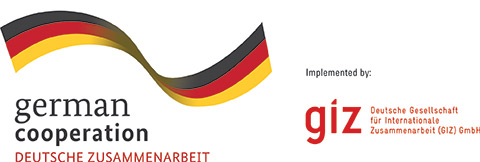Fighting climate change and preserving the environment for future generations is one of the greatest challenges confronting humanity. Scientists worldwide are working around the clock to find solutions that will give people a chance for a safer future. However, given that environmental sustainability is an extremely complex goal, achieving it requires the involvement of the wider community and cooperation between different actors, such as the private, public, and civil sectors
An example of such cooperation is the project Smart Urban Can Collection System, which represents a joint venture of companies Solagro, Mercator-S and Ball Packaging Europe, within a development partnership programme with the private sector develoPPP.de, supported by the German Development Cooperation, implemented by GIZ through the Open Regional Fund for Southeast Europe – Modernisation of Municipal Services.

Recognising inadequate waste management as one of the factors contributing to environmental pollution, as well as the great potential of the recycling of aluminium cans as an excellent model for the circular economy, these companies have teamed up to encourage consumers to recycle, using innovative digital solutions.
Additionally, citizens who recycle cans using smart devices will have the opportunity to get discounts at IDEA stores through the Solagro.app application, while the most successful recyclers can expect numerous valuable rewards. Now four smart presses for recycling cans at IDEA stores have been installed on the territory of Belgrade, while it is planned to install these devices at 10 other locations within the scope of the project. The project envisages the development of a portal for presenting data, as well as the development of a business model.
Today, in the midst of the Fourth Industrial Revolution, Serbia has gained a completely new, digital approach to recycling through an innovative software solution. With further digitalisation, the emergence of new business models is expected, assisted by artificial intelligence and shaped by the need for a new, ecological design, all with the aim of transitioning to a circular economy.
Today, in the midst of the Fourth Industrial Revolution, Serbia has gained a completely new, digital approach to recycling through an innovative software solution. With further digitalisation, the emergence of new business models is expected, assisted by artificial intelligence and shaped by the need for a new, ecological design, all with the aim of transitioning to a circular economy
Changes have been noticed on the market over the past 12 months, with consumers having started to change their habits and become increasingly aware of the impact that companies have on the environment. The Smart Can Collection System project primarily strives to raise citizens’ awareness of environmental protection through a socially responsible campaign, stimulating them to contribute to a better future with their actions, while at the same time setting an example of corporate social responsibility.
For the first time, smart can collection systems have brought a smart system for packaging waste recycling to our market, with game elements and data analysis of recycled material integrated into the loyalty programme of a supermarket in the region, which was fully developed by a domestic company – the startup Solagro. This start-up has thus shown that young innovative companies in Serbia not only keep up with new technologies and trends in the field of recycling, but also set them themselves.
Aluminium cans are 100% recyclable and represent the most sustainable type of packaging. They can be recycled indefinitely without loss of quality, so the process of recycling them is a closed circle and brings great savings, while at the same time reducing environmental pollution significantly. Recycling cans reduces the consumption of natural resources, as well as the amount of waste dumped in landfills. As a society, we have shown great readiness to accept new and bold ideas and initiatives, often led by companies that selflessly invest their significant resources, time and knowledge.
Photo: GIZ/Miodrag Bogdanović